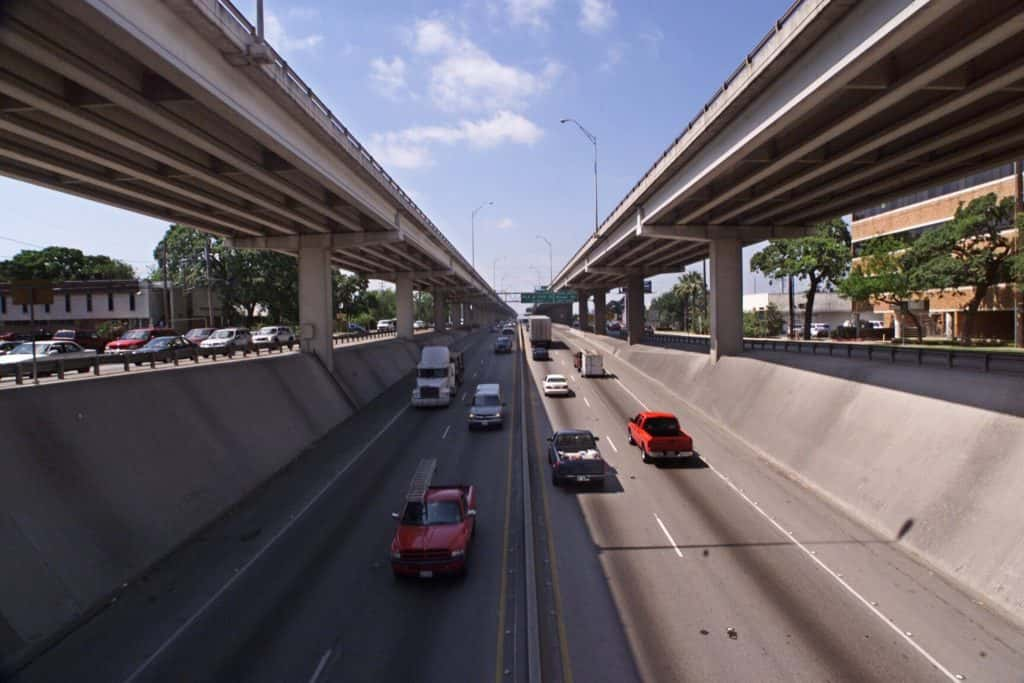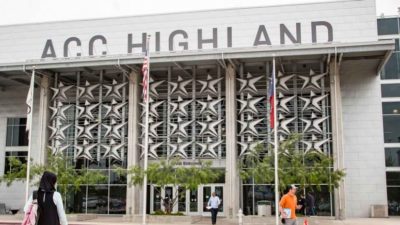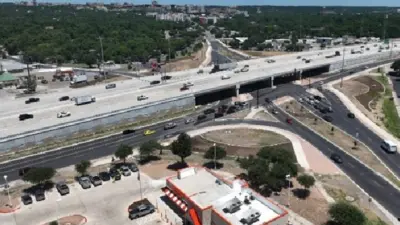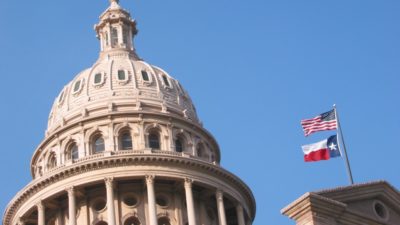(Credit: KLBJ staff)
Senator Kirk Watson several bills today providing the Texas Legislature multiple options to fund the transformation of I-35 in Travis County.
“Congestion contributes substantially to the cost of living in Central Texas,” Sen. Watson said. “As congestion worsens, people are paying a premium to live closer to our economic centers. And for those priced out of housing close to their job, they spend more money and time getting to where they need to go, often paying for more hours of child care while they are commuting.”
The Texas Transportation Institute (TTI) in 2018 ranked 14 road segments in Travis and Williamson County among the state’s 100 most congested. I-35 through Central Austin, from SH 71 to US 290 East, is third on that list. It is also the most congested segment on TTI’s newly-created list of roadways congested by truck traffic. The study further estimated the annual cost of congestion to Central Texans was over $1.3 billion in wasted time and fuel.
Sen. Watson also filed legislation to increase statewide funding for transportation — with some funds going to education — as well as local options for residents of large, urban counties to consider investing further in road and transit expansion.
“Texans need and deserve affordable, reliable transportation options for drivers, transit riders, bicyclists and pedestrians,” said Sen. Watson. “Adding managed lanes to I-35, investing in safety and mobility improvements across the state and permitting major urban counties to increase investments in dedicated transit pathways are tools the state can and should provide our fast growth, high-congestion economic centers.”
The transportation bills include:
- SB 1073 reopens two statewide debt instruments (the Texas Mobility Fund and State Highway Fund bonding authority) explicitly for the sale of a combined $4.5 billion in debt. The remaining funds would come from authorized Capital Area Metropolitan Planning Organization (CAMPO) allocations and both authorized and unallocated TxDOT funds. The managed lanes under this scenario would be non-tolled.
- SB 1074 authorizes TxDOT or the Central Texas Regional Mobility Authority to contract for a comprehensive development agreement in which the private sector would fund, build, operate and maintain the project under government supervision. The managed lanes under this scenario would be tolled to provide a payback mechanism for the private sector loan.
- SB 1075 authorizes TxDOT to enter one comprehensive development agreement annually, reestablishing this tool in the Texas congestion mitigation toolbox. The managed lanes under this scenario would be tolled to provide a payback mechanism for the private sector loan.
- SB 1076 acknowledges the unequal taxation of road users under the motor fuels tax by applying an additional registration fee to alternately fueled vehicles that avoid this tax. The rate would be set by formula based on the average tax paid by users of similar vehicles types and discounted 15 to 25{a77561a3d577901ee15dca150fea59fe3467aeb2007c1dd097ee2f4c696e6096} as a continued incentive for the purchase of low-emission vehicles.
- SB 1077 doubles the state motor fuels tax. This flat, 20 cent tax has been the same rate since it was established in 1991. Revenue from one-quarter, that is 5 cents, of the tax goes to the permanent school fund. In Fiscal Year 2018, the state motor fuels tax raised a total of $3.67 billion – $2.76 billion for roads and $918.7 million for schools.
- SB 1078 adds counties located in the Central Texas Regional Mobility Authority and other multi-county regional mobility authorities, to the list of counties authorized to increase the vehicle registration fee $10 to fund transportation improvement projects through the Mobility Authority.
- SB 1080/SJR45 authorize an optional referendum in major urban counties to create a local option motor fuels tax for transportation improvement projects. Statewide passage of the accompanying constitutional amendment would be required to spend authorized funds on non-road, transit projects.
The final bill in Sen. Watson’s transportation funding tool box enables major urban counties, including Travis, to utilize existing authority to enact up to a 1{a77561a3d577901ee15dca150fea59fe3467aeb2007c1dd097ee2f4c696e6096} sales tax despite the 2{a77561a3d577901ee15dca150fea59fe3467aeb2007c1dd097ee2f4c696e6096} cumulative, total local-tax cap. A list of the projects to be funded must accompany the required referendum and the authorization would last only 30 years. Three-quarters of the funding must be used for transit and the remaining funds could be used for road improvements. The bill will be filed in the coming days.
“Each of these financing methods have their detractors, but there is no highway fairy, money doesn’t grow on trees and we can’t get something for nothing,” Sen. Watson said. “Talk is cheap – roads are not.”





